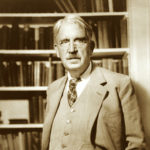NCDD Member Tom Prugh is working with Resilience.org to launch a blog series on the site, titled “Democracy Rising.” The goal of the blog is to introduce the readership to deliberative democracy. He’s working with some fellow NCDD members already, but is looking to expand the list of contributors. What better way than to reach out to you, the NCDD network!
Below is a description of the series and its purpose from Tom. Read on for more information on how to express your interest.
 Democracy Rising will be a series of blog posts for the website Resilience.org that will lay out the basics of deliberative democracy: why it’s powerful, why the time is right for it, how it works, and how to get it going in one’s community. I will curate the series and write some posts myself, as well as reach out to various scholars and practitioners for contributions. I expect to submit a post every week or two for a year or so.
Democracy Rising will be a series of blog posts for the website Resilience.org that will lay out the basics of deliberative democracy: why it’s powerful, why the time is right for it, how it works, and how to get it going in one’s community. I will curate the series and write some posts myself, as well as reach out to various scholars and practitioners for contributions. I expect to submit a post every week or two for a year or so.
The underlying premise is that our system of democratic governance is in peril. Many top-down tweaks to the system are possible and necessary, but they will not be sufficient. Changes to the machinery of politics can help fix what’s broken at the top—but not what’s broken at the bottom. DD can help with that: it has a proven track record of bridging divides, tapping our collective intelligence, and mitigating political animus. It is possibly the best means of promoting the education into citizenship that makes for strong communities—especially as we approach an era when increasing localization seems likely.
The problem is that while DD is well known among the many scholars, practitioners, and citizens from all over the world who have experience with it, it’s mostly off the public radar. The field doesn’t lack expertise or results—there is a deep well of both within the DD community. But you could scan the mainstream media for years without seeing a single mention of a town meeting, citizens’ council, or technology review panel. The local focus means local obscurity.
DD needs more evangelism—an effort to publicize it to the wider world and build a movement of “democracy preppers” who want to stockpile social and community capital rather than beans and ammunition. The Resilience readership is largely focused on preparing for a post-carbon world–one of lower energy, less economic growth, and rising ecological stresses–and DD has much to offer as a means for communities to weather the turmoil ahead. This is a largely untapped audience that seems primed for the deliberative democracy message. The Resilience website has had 3 million unique visitors.
In addition to posting on Resilience.org, contributors are welcome to post on their own sites, and NCDD will be cross-posting as well. Contributions may be recurring or one-time. Brief author bios appended to each post will allow contributors to reach out to this new audience with information about their professional services and/or scholarship.
Topics should aim to fit into one of five categories, particularly topics 3 and 4:
- history and surveys of examples
- theory and arguments for DD
- handbook-type posts on how to do it; there is a huge amount of info on the NCDD website already that could be adapted for posting
- strategies and tactics for seeding it in a community
- further research, ongoing musings (further into the project)
If you are interested in exploring this opportunity, please reach out to Tom at PRUGHT@msn.com.
NCDD hopes you will consider contributing your perspective, resources, and research to this project! This is an exciting opportunity to reach more folks and share the opportunities that deliberative democracy can offer us all in working through today’s toughest challenges together.

 The summer issue of the National Civic Review celebrates cities that are making progress on addressing challenges such as racial equity, health equity and community resilience. Review authors offer insightful ideas on measuring the value of public participation, engaging urban residents through block clubs, promoting public trust with better service delivery and digital communication, and the most effective ways of seeking input from youthful residents. Former Missoula Mayor and Speaker of the Montana House of Representatives Dan Kemmis offers his ideas on what a small “d” democratic renewal movement might look like in the 21st Century.
The summer issue of the National Civic Review celebrates cities that are making progress on addressing challenges such as racial equity, health equity and community resilience. Review authors offer insightful ideas on measuring the value of public participation, engaging urban residents through block clubs, promoting public trust with better service delivery and digital communication, and the most effective ways of seeking input from youthful residents. Former Missoula Mayor and Speaker of the Montana House of Representatives Dan Kemmis offers his ideas on what a small “d” democratic renewal movement might look like in the 21st Century.




